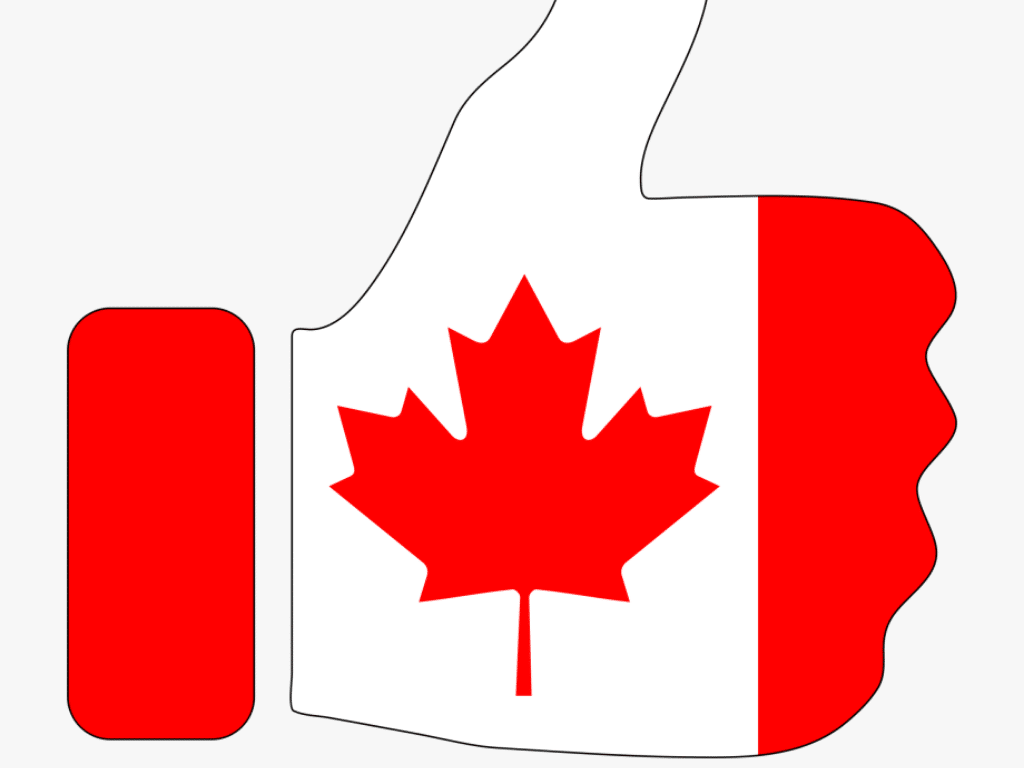The beautiful country
Did you know that Canada is the second largest country in the world? Yes really! This magnificent country has everything to die for. Canada is a beautiful country with no shortage of unique landscapes and sites. This is the reason why most travelers leave each year to explore its wonders. Canada is home to culturally rich cities, a vibrant environment and incredible natural wonders. Canada is one of those countries that has so much to offer to its tourists and residents. From the island’s sites to the scenic mountain waterfalls, Canada stretches from the Atlantic to the Pacific coasts. Honestly, it is a country with a rich heritage ranging from Indians on the north coast of British Columbia to French explorers in Quebec.
When you visit Western Canada, the Rocky Mountains and the cities of Victoria, Vancouver and Calgary dominate most of the routes. And visiting central Canada will amaze you with its cities like Toronto, Ottawa, Montreal and Quebec, and its magnificent Niagara Falls. However, Canada’s North is a little off the beaten track, but it is just as impressive with the major rivers flowing into the Arctic Ocean. This creates incredible territory and you can see polar bears in the wild. In addition, you can also visit some of the beautiful places such as Nahanni National Park and the
the cities of Whitehorse, Churchill and Yellowknife.
Are you moving to Canada? Things to keep in mind!
As you prepare to move to Canada, it is important that you know certain things before you move to Canada. And, for that, we will help you with a few things. Here is less confusion and realistic expectations for you while you decide to move to Canada. Now that you have decided, we want you to congratulate yourself first on having called to move to Canada. So don’t worry, we’re here to help you make your move to Canada as smooth as possible.
- Weather
Now that you want to immigrate to Canada, know that you cannot choose between the sun or the snow. You’ll have to feel both unless you live on the coast of British Columbia. The weather will be colder, you will have to face snowy winters and hot summers, with short transitional seasons. The cold of the country in winter will certainly surprise you if you come from a mild or hot climate. Another thing, don’t take summer for granted.
- Health care is funded, but not everything is “free”
When you become a citizen and become a permanent resident of Canada, you are entitled to health care benefits. The Canadian government allows you to see a doctor at no cost. However, this only applies if you leave the appointment with a prescription, you may be left to pick up the tab at the pharmacy. Same scenario with dental care, first of all, it is not publicly funded and can seriously put a hole in your pocket. Medicare offered by third parties, but Canadians have to pay for dental, eye and medication. And, one more thing to add, if you think you need antibiotics for something, you will need to consult the doctor first. They are not available over the counter. It takes several months to obtain health care benefits after obtaining permanent residence, so it is best to arrive with at least six months of international health insurance as a buffer.
- Best time for resettlement
It is best to move to Canada at the ideal time for the best selection of jobs and accommodation. It’s better if you arrive in Canada in spring / summer. Most organizations are less likely to hire in the winter. And, they start their hiring process in March / April. So these months are the best months to get used to your new job and home. Once winter comes, it is very difficult for you to look for anything according to your comfort because the weather is too harsh. And another important thing that you are moving with your family and children, note that the school year starts from the first week of September. This information will help you adjust the travel dates accordingly.
- The money you need
The amount you need to move to Canada depends on the visa you are coming to Canada with. Now that you have decided to move to Canada, you should be able to support yourself until you find a job. The requirement for working holiday visa holders is a minimum of $ 2,500 CAD as proof of funds and an additional flight or money to purchase a return flight. In addition, you must also take out medical and travel insurance which is highly recommended, as we explained above. Before you simply change jobs, it’s crucial that you know what the cost of living in a city is.
- Get used to poutine and maple syrup
The national dish of Canada is poutine and it is a slang in Quebec which means “a mess”. However, that’s about what you get. This dish is mainly crisps which are covered with sauce and semi-melted cheese curds. Yes, it doesn’t sound like a meal, but Canadians love it very much. Also pay attention to the calories in this dish, as a side order of poutine in Burger King contains 740. Heavy for sure! Aside from poutine, Canadians are crazy about maple syrup. This sweet and sweet syrup almost flows through their veins.
- Taxation
Taxes are collected at several levels, as part of Canada’s decentralized federal system. Income taxes in Canada are collected by the federal and provincial governments. In addition, it depends on your status and your conditions of employment that you may also be entitled to a tax refund at the end of the fiscal year. Sales taxes vary from province to province, from 5% in Alberta to 14.975% in Quebec. So be aware that any item advertised at $ 10 will cost you more when you pay for it.
Before applying for permanent residence in Canada…
The category of provincial candidates (PNC)
Canada receives applications for permanent residence from people who have the skills, education and work experience. So that they can contribute to the Canadian economy. The Provincial Nominee Category (PNC) is an official document that allows provincial and territorial governments to make decisions for immigrants based on the economic needs of the province or territory. Each province and territory has its own standards and processes for choosing candidates, and it tries to appoint candidates who would be most likely to settle effectively.
The PNC must be requested in 2 stages:
Apply first in the province or territory where you want to be nominated and live in the future. Once a province or territory has designated the person, it is important to apply for IRCC for permanent residence. After that, an IRCC officer then assesses the application against Canadian immigration rules.
Understand the difference between permanent resident status and Canadian citizenship
A permanent resident is one who obtained permanent resident status by immigrating to Canada, but is not a Canadian citizen. Permanent residents are citizens who belong to other countries. Remember that if a person is in Canada temporarily, such as a student or foreign worker, they are not a permanent resident. Refugees who wish to become permanent residents must follow the government’s refugee assistance program or the private sponsorship of refugees program. Claiming refugee status in Canada does not work that easily. The Immigration and Refugee Board must first approve their request. Only after that can one apply for and obtain permanent resident status.
As a permanent resident, you are entitled to receive most of the benefits to which Canadian citizens are entitled. This may include health care coverage, living, working or studying anywhere in Canada and applying for Canadian citizenship. It also gives you protection under Canadian law and the Canadian Charter of Rights and Freedoms. In addition, there will be no tax refunds and you must pay taxes and comply with all Canadian laws at all levels, federal, provincial and municipal. However, as a permanent resident, you are not allowed to vote or run for political office and to hold jobs that require a high level security clearance.
How to become a Canadian permanent resident?
To initiate the public relations process in Canada, you must first contact the nearest Canadian consulate, high commission or embassy. Here are some of the basic requirements for obtaining a permanent resident visa:
- Provide medical certificate and criminal record check
- Complete and submit a permanent resident visa application
- Pay the administrative fees
- Attend interviews with immigration officials
Apart from all that, little depends on the nature and the category of your application. The items listed below may or may not be required:
- Originals, copies and official translations of supporting documents
- Documents may include diplomas, degrees and teaching certificates, personal identity documents and / or letters of sponsorship and relevant information.
- Sufficient funds to support the applicant
- Competency assessment test
- Proof of refugee status
- Language test results
- Additional charges
- Other documentation or tests
What are the fees for a permanent resident visa to Canada?
The cost of the permanent resident visa is 1040 Canadian dollars per applicant over 18 years of age. The PR for Canada visa fee is requested at the final stages of the process.
During the initial stage of the process of permanent residence in Canada, a person will be charged fees for the evaluation of educational credentials. These costs are $ 285 Canadian per applicant. It’s about determining if your education meets Canadian standards and you’re all ready for the process.
What is the processing time for the visa for permanent residence in Canada?
Well, there is no final timetable for when you can get a permanent resident visa for Canada. Yes, one thing is certain: the selection and approval of your visa application depends largely on your CRS score. However, in general, processing times after receipt of the ATI take approximately 4 to 6 months.
Eligibility for Canadian citizenship
You may be eligible for Canadian citizenship if:
- You are a permanent resident of Canada
- You have been physically present in Canada for at least 1,095 days, regardless of your age
- You meet all the other conditions.
You may be eligible to apply even if you do not meet the minimum time requirement if you are a Crown official or a family member of a Crown official.
Well, these are some of the things that should be kept in mind before you move to Canada. I hope you have found the information useful.




















